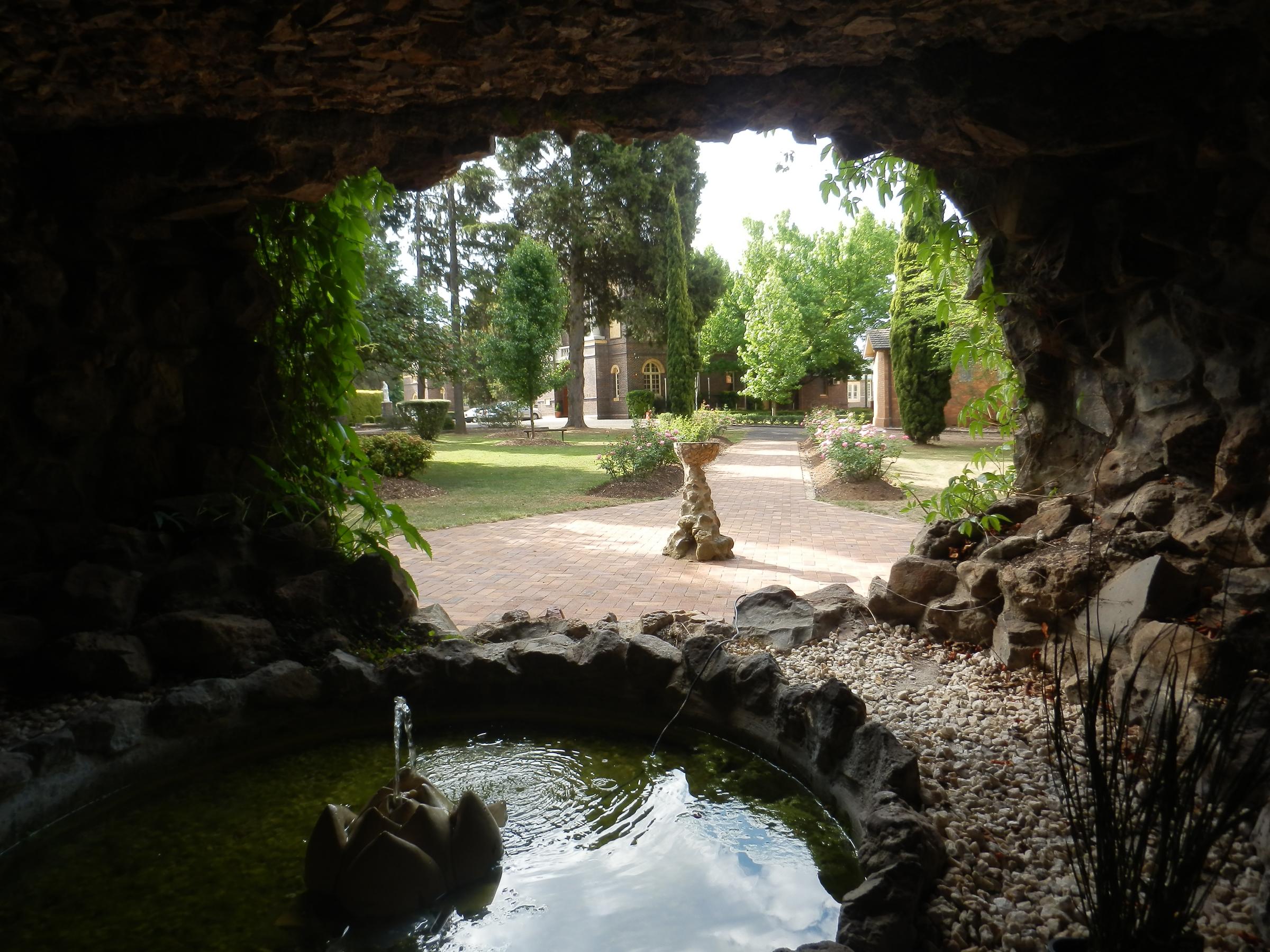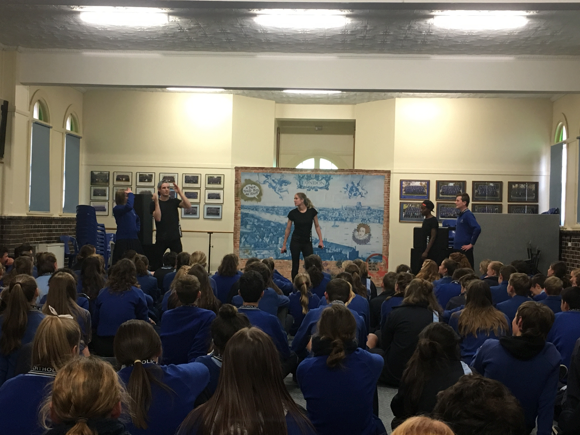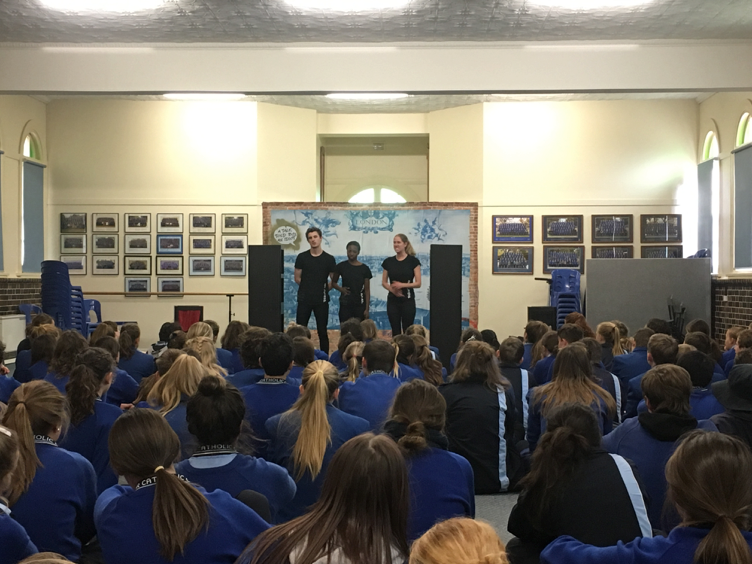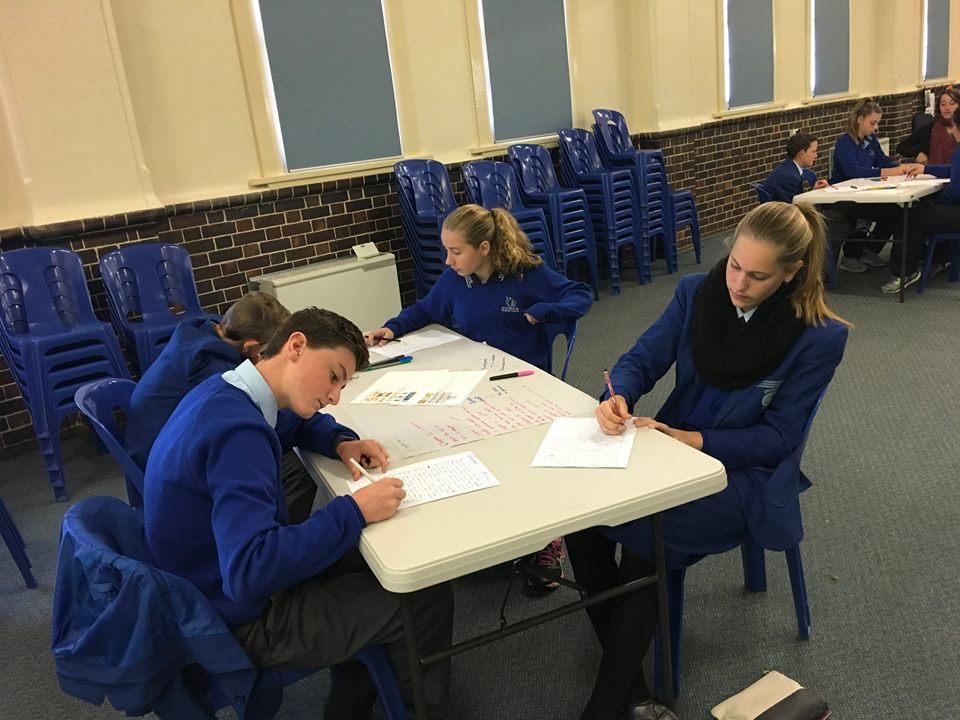College News

Bell Shakespeare
Bell Shakespeare at O’Connor Thursday 1st June
Students in Years 9 and 10, and year 11 Advanced English were transfixed by three actors from Bell Shakespeare on Thursday afternoon as they delivered a rousing and provocative insight into the world of William Shakespeare circa 1570.
Students found the energy of the performance immediately engaging and the physical drama and rapid fire delivery of Shakespearean insults assumed a new level of clarity because of the very clever and humorous efforts of the team of actors. Students were invited to participate in the various excerpts of Shakespeare’s comedies, tragedies and the history plays learning about the influence of Shakespeare’s context on the works he created.
Morgane Sercombe (year 11) and Corey Wilson (year 9), experienced the delight of participating in the fight scene from Romeo and Juliet currently being studied in their English classes. Year 11 was similarly treated to the barbed gibes between Katherine and Petruchio in The Taming of the Shrew that they will be studying next term.
The students in the audience are commended on their concentration and mature behaviour throughout the hour-long performance and they expressed their appreciation of the efforts and talent of the actors.
Watching such performances is a wonderful opportunity for students who would not otherwise be exposed to live performances of Shakespearean plays or live theatre of any kind.
Their obvious enjoyment and engagement in the entire presentation was obvious. The performers responded to a question and answer session with the audience and also chatted with students after the presentation.
We would like to thank the performers from Bell Shakespeare for a wonderful afternoon of educational entertainment.
Ms Susan McLeod
English Coordinator
Writing Workshop
Kerrie Pridis from the Catholic Schools Office facilitated a talented writing workshop for targeted students in Year 7 to 10. There were lots of great ideas and creative juices flowing as the students collaborated and formulated their ideas to create "a book in a day "
Pastoral Care
PAC (Pastoral Academic Care) Diary News
Each week in PAC we look at a different Wellbeing Element and a different Character Strength from our Wellbeing Program.
Last Week the Wellbeing Element was ‘Relationships & Optimism’ and the Character Strength was ‘Fairness’.
21st century students crave for a sense of social connectedness from their peers seemingly above all else. Often, they are more comfortable doing what they know is not the best for them to protect their social acceptance. Unfortunately, this often means students are reluctant to leave their comfort zones to explore other ways of thinking.
Group learning is an effective way to harness and value a wide range of abilities, points of view and attitudes to issues, for students to combine their top strengths, to gather input from all students, for students to experience “peer” learning and feel valued for their views and ideas and to cultivate collaborative and interdependent habits through mindful and empathetic listening.
Keys to a well functioning group are a valuing, tolerance and acceptance of individual differences. They have two ears and one mouth and as such should listen twice as much as they talk, a clear set of agreed expectations to follow and not a group of similar thinking clones.
“Many drops fill the bucket.” Mother Teresa
Next week the Wellbeing Element is ‘Positive Engagement’ and the Character Strength is ‘Bravery’
Often the most negative messages we receive come from our own self-talk in our heads. This tends to happen when we are under pressure and have a fixed mindset that there is nothing we can do about our issues and beyond our control. Combine this with the turbulence of the adolescent brain and the recipe is there for frequent stress and anxiety attacks.
One of the best positive coping strategies we can teach students is the power of positive self-talk. In fact, it will benefit our state of wellbeing to use it often too. Positive self-talk are I can and I will statements, which we say, over and over to ourselves in our heads. Doing this contests the negatives and focuses us to start looking for what is right in what we are doing. See the Positive Education section for a list of examples of positive self-talk that we can encourage students to use often.
The key to making positive self-talk most effective in maintaining growth mindsets is to use it immediately negative thoughts enter our minds. When used well these statements act as excellent off ramps for negative thinking and xed mindsets. Positive self-talk is about believing in our internal control.
“Let he who would move the world first move himself.” Socrates
Jon Hawthorne
Pastoral Academic Care - Student Wellbeing Coordinator




